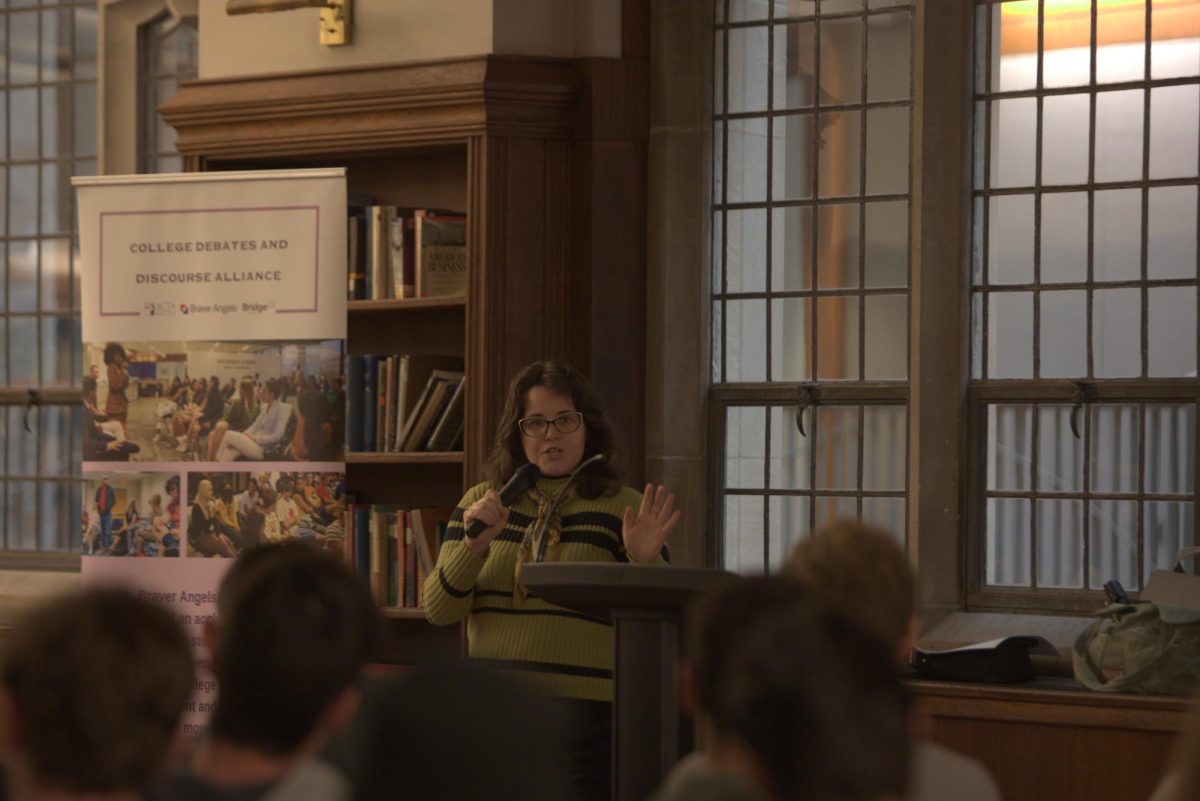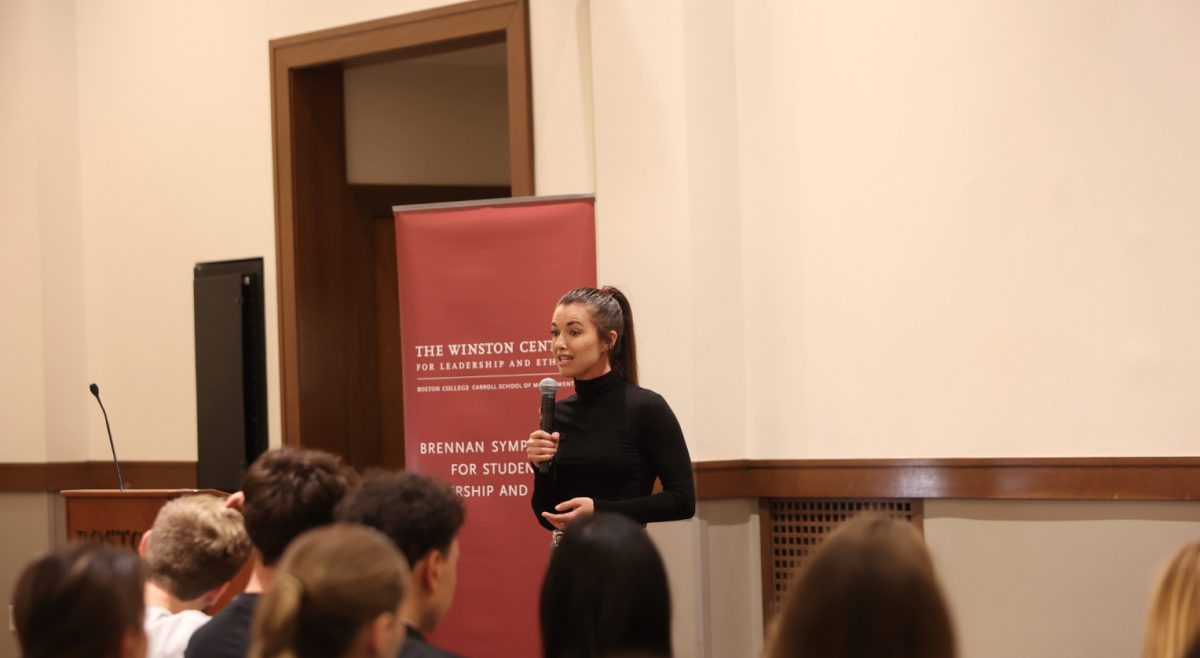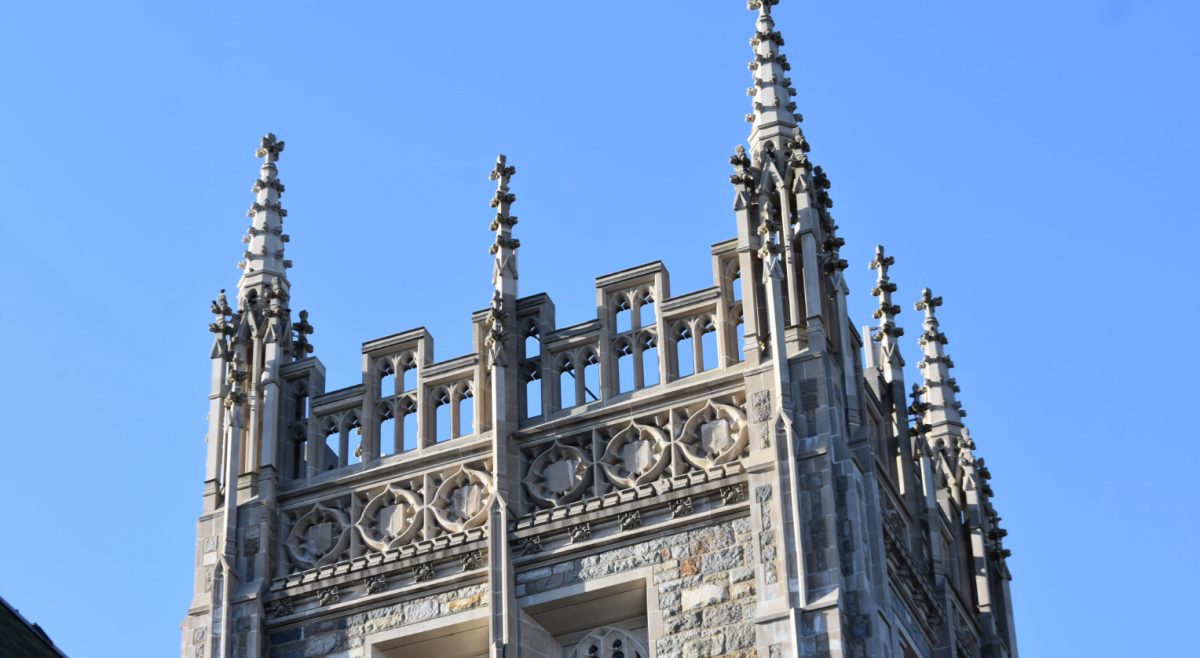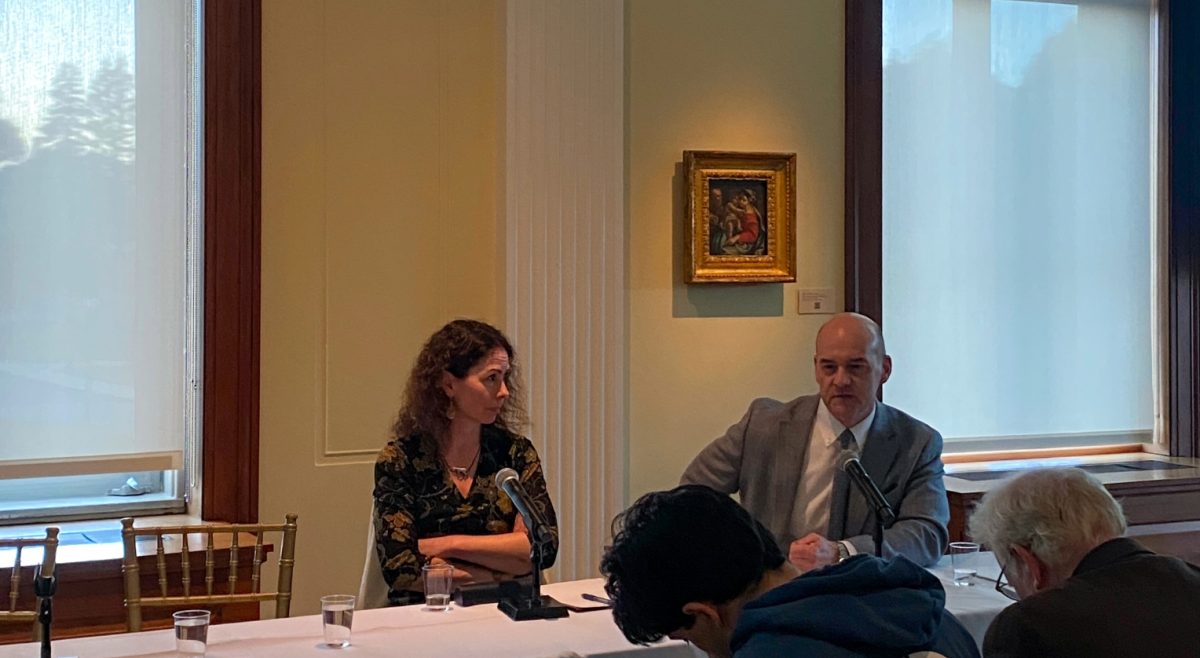Rev. Mark Massa, S.J., will step down from his role as director of the Boisi Center for Religion and American Public Life after nine years in the role.
“I’ve been blessed with having really good resources and very good people who work with me,” Massa said. “I think the legacy is that we placed the Boisi Center in a very good position.”
Created in 1999, the Boisi Center brings scholars together with religious leaders and political figures to explore the intersection between religion, politics and American culture.
During his time as director, Massa organized two annual lectures events—the Alfred and Melissa Di Leonardo Lecture and the Nancy Marzella Lecture of Women and American Catholicism. He also helped create the interdisciplinary minor religion and public life.
Out of everything the Boisi Center does, Massa said interacting with students and faculty is the most fulfilling, especially through interdisciplinary faculty seminar, which he introduced.
“This year, we have 12 people from all over the place—from the law school, nursing school, political science, theology, philosophy, history,” Massa said. “It’s on Christian nationalism and the roots of political violence in America today. After each [seminar], I think I have very smart colleagues. I’m in a very smart faculty, so that’s fine and rewarding”.
In his research, Massa examines the role the Catholic Church should play in American public life.
“I try to figure out what the relationship of Catholicism to American culture should be,” Massa said. “So, all my books are attempts to figure out that right relationship.”
Before returning to the BC as a full-time professor, Massa will take three semesters off, spending the spring at John Carroll University and the 2026–27 academic year as a visiting professor at Fordham University.
The Morrissey College of Arts and Sciences has begun a search for the next director.
During his time away from BC, Massa is looking to continue his research on Catholic integralism, an interpretation of Catholic social teaching that rejects the separation of church and state.
“[Catholic Integralists] believe that the First Amendment was a mistake and there should be no separation of church and state of religious freedom,” Massa said. “And the Catholic Church should be the official Church of the United States, but Catholics only make up 20 percent of the American population, so how would that work?”
Massa emphasized that his main goal as director was to leave the Boisi Center well-positioned for his successor.
“It’s somebody else’s turn to try to do this,” Massa said. “If you have a place that falls apart as soon as you leave it, you haven’t been a good director, because you want to set up a center that it sits in a good position, so whoever takes over will be in a good place to carry on the center.”
Daniel Joslyn-Siemiatkoski, Kraft family chair in theology and irector of the Center for Christian-Jewish Learning, praised Massa’s generosity and ability to bring together different groups.
“He believes in collaborating across the different departments and disciplines at Boston College,” Joslyn-Siemiatkoski said. “He has a good ear and eye for what is relevant on the contemporary scene, and he’s able to use a really great network of connections to bring interesting people to campus and find creative ways to collaborate.”
In Joslyn-Siemiatkoski’s view, under Massa, the Boisi Center has made significant strides and become central in discussions about American Catholicism.
“I think one of the things he’s really done a lot is try to make the Boisi Center a site where important questions about contemporary American Catholicism are being asked,” Joslyn-Siemiatkoski said. “I think he really has a keen sense of how a Catholic university operates, and the questions it ought to be asking.”













